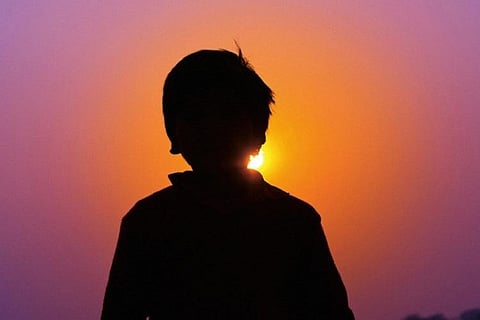

Media reports on the commercial sexual exploitation of children (CSEoC) are often based on raids and rescues by NGOs and law enforcement agencies. But the story does not end there. There are several aspects that do not get reported, such as the role of customers, and stories often end up focusing only on the traumatic experience of survivors.
In order to highlight how deep the problem is rooted, The News Minute in partnership with Change.org, is hosting a workshop for journalists on Friday in Hyderabad. This follows a similar workshop that was held on March 20 in Bengaluru.
The workshop will include an introduction to the issue, audio-visual presentations, CSEoC resources and sensitivity training for journalists, and interaction with a survivor, among other things.
Domain experts will be familiariasing attendees with the nuances and policies around CSEoC as well as reporting on the same. Trafficking and migration issues researcher Roop Sen, who is also the founding member of Sanjog, an NGO working to strengthen and implement anti-trafficking laws and welfare schemes; and Ragamalika Karthikeyan, Deputy News Editor, TNM, will be holding the workshops.
Roop Sen pointed out that at present, media reports, including investigative pieces, majorly focus on CSEoC with respect to human trafficking based on raids and busts by law enforcement agencies.
“Take the example of children who work as masseurs on Mumbai's beaches and even attend house calls. They are also sexually exploited, but there is no trafficking involved,” he notes, “Much of the business in commercial sexual exploitation has moved online, what with access to social media and the dark web. For instance, young girls being blackmailed and forced into flesh trade by men or their ‘boyfriends’.”
Ragamalika said that one of the things that journalists should do is to hold the systems of law and governance accountable, and this is true whether the issue is human rights or crime or politics or civic apathy.
Regular follow-ups, using the correct language to report and always keeping in mind that stories should not impact the survivor negatively are crucial points to keep in mind.
“When it comes to Commercial Sexual Exploitation of Children -- and closely linked issues of child sexual abuse and trafficking -- journalists must ensure that they are following through on these stories from start to finish, and are using the right language to report these stories. It's important to go beyond the instance of the crime itself -- to go beyond raid and rescue. We must ask -- who is the person employing these children? What is their modus operandi? Who is the customer and how do we make this customer accountable? How is the law dealing with these cases? What are the kinds of stresses that these children have to go through during trial -- and how do we ensure that the system becomes more sensitive?” she said.
She added, "Journalists have a duty to ensure that all aspects of the issue are covered -- and covered sensitively. Sometimes, in our pursuit of stories, we don't realise that at the end of the day, the survivors have to live with what we have written about them as well. This is something we should never lose sight of."
According to Durga Nandini, Communications Director at Change.org, “A media sensitisatsion workshop that we organised in Bengaluru recently helped in mainstreaming the conversation of child sex trafficking with journalists. Most of them had reported on child sexual abuse, but they agreed that CSEoC did not appear in their radar as an issue that could be reported. In Hyderabad too, we hope journalists can draw upon the experiences of researchers, media experts and survivors to become more aware on issues related to child sex trafficking.”